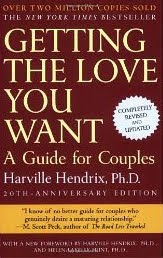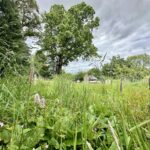Time passes and I feel less hurt and angry then when I wrote my last journal entry. Due in part to time and in part to some grace unexpectedly received from attending a traditional church service for the first time in ages. The creed was still unbearable but there were moments when the crusty old shell of the liturgy cracked open to let through a little light. My personal epiphanies came firstly through the prayers, while reflecting on the floods in Pakistan and the local man who recently lost his life to a runaway round bale on the Kingsbridge hill. Remembering the shared nature of suffering and feeling glad to be alive was a powerful balance to my own small struggles.
But what really got me thinking was the bible passages and especially the psalm, which contained some wonderful expressions of divine and human anger. Would be spiritual types like myself generally have a problem with anger. Years of religious conditioning can make it hard to know how to handle anger, which tends to be heavily judged and denied in ‘spiritual’ circles. When I discovered my husband was having an affair, instead of packing his clothes in a suitcase and putting them on the doorstep (as a friend of mine did….and later went on to mend her marriage), I flailed around trying to understand everyone else’s perspective. But I’m slowly learning to be more honest with myself about the fact that pain hurts and betrayal makes me angry… and as I scanned Psalm 139 and thought about my buyers, it was a blessed relief to read “If only you would slay the wicked, O god! Away from me, you bloodthirsty men!” because actually that was exactly how I was feeling!
But feeling anger is just a beginning. Where next? Probably not the actual slaying of enemies either literally or in some more subtle way! Where is the middle ground between unconscious suppression and mindless acting out of anger? Given that I’ve been personally specialising over recent years in experiencing murderous rage….how to handle it? Are there skilful expressions of anger? There must be or surely we would have no capacity to stand up to injustice?
I spent many years in psychotherapy, both individually and in groups. It involved a fair amount of yelling and cushion bashing, but one thing I noticed as the years passed was that it didn’t seem to help me or anyone else much. We didn’t get more resolved about our anger, we generally just got angrier…or exhausted! I recently read that the world famous therapist Dr Harville Hendrix had come to a similar conclusion and he has a section in one of his books called ‘Why anger breeds anger’. He was able to back up his observations (and the fact he no longer uses the method of ‘venting’ pent up emotions like anger as a therapeutic technique) by referring to recent discoveries in neuroscience. The brain apparently is very adaptable throughout our lives – experience creates neural pathways… and nerve connections that are not stimulated are ‘pruned away’. So when we exercise our capacity for anger (or depressive thinking…or loving…or whatever) through our thinking, feeling and actions we actually grow those neural connections in our brains and become more able and likely to be angry, depressive…or loving…
Buddhism has a real grip on this, it seems to me. I think some of the most skilful teaching about how to handle strong emotion is currently coming out of the Buddhist tradition from teachers such as Thich Nhat Hahn and Pema Chodron. Hahn writes beautifully about holding anger mindfully, like a mother lovingly holding a feverish child. Another image he uses is of composting the garbage of anger into the flower of compassion and its not just irritating, idealistic psychospiritual-babble but very practical, down to earth advice involving compassionate recognition of our own anger and mindful understanding of its roots and how it works.
As I write this, I’m still trying to get my head round his teaching that the seeds of anger lie inside us and what they grow into is up to us. They may be triggered by others’ unskillful behaviour but we don’t have to then become either a passive, disempowered victim or lash out and punish in return. I think he’s saying it’s possible to acknowledge a problem and work to transform it, both within and without, but through strength and courage and compassion, rather than through imposing force and fury. I think that’s something I’m trying to figure out in myself. I need something of the passion of anger, that capacity for setting boundaries and standing up for what is creative and life giving and I need that balancing force of open heartedness and compassion.
It doesn’t seem possible to generalise…each of us is working out our own balancing act. In Kabbalah there’s a recognition that on the tree of life, the ‘branch’ of mercy is balanced by that of judgement. Each of us has to figure out which way we habitually lean, in order to find balance.









Leave a Reply